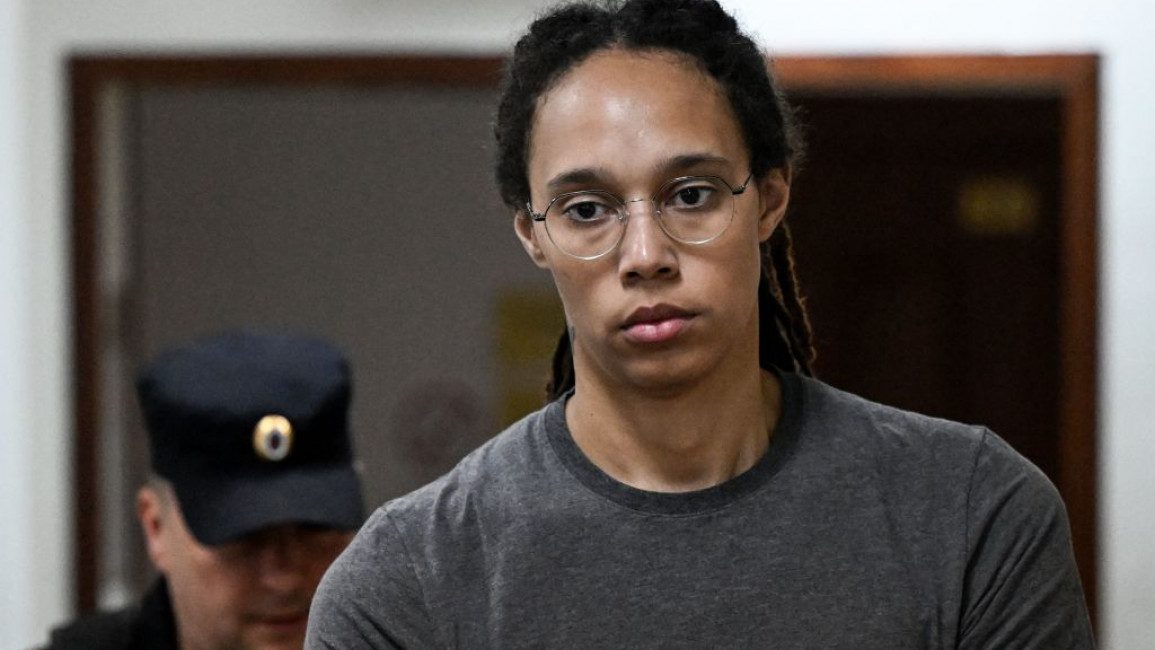World
US trades an arrested American basketball player for Russian arms dealer known as the “Merchant of Death”

In a high-profile prisoner swap on Thursday, Russia released WNBA star Brittney Griner in return for the US releasing notorious Russian arms dealer Viktor Bout, according to American officials. President Joe Biden’s principal objective was fulfilled by the trade, which took place during a period of increased tensions over Ukraine, but it came at a high cost and left an American prisoner in Russia for over four years.
The deal, which marked the second such swap with Russia in eight months, secured the release of the most well-known American held overseas. Griner, a two-time gold winner at the Olympics, was wrongfully imprisoned for several months but his case received a lot of media attention.
The increasing pressure on Biden’s administration to repatriate Griner was highlighted by his approval of the release of a Russian felon once known as “the Merchant of Death.” This was especially true given the recent conclusion of her criminal prosecution and her subsequent transfer to a correctional camp.
US officials with direct knowledge of the negotiations who spoke on the condition of anonymity because they were not permitted to publicly discuss the agreement before a White House statement confirmed the swap.
After months of tense negotiations, Russian and US officials have recently expressed cautious optimism. Biden stated in November that he was confident that Russia would enter into an agreement now that the midterm elections were over. Last Monday, a senior Russian official suggested that a deal might be reached before the year is over.
Even so, the fact that the agreement was a one-for-one trade came as a surprise given that US officials had long expressed their desire to extradite Griner as well as Paul Whelan, a Michigan corporate security executive who has been imprisoned in Russia since December 2018 on espionage charges that his family and the US government have said are unfounded.
The United States liberated Bout, a former lieutenant colonel in the Soviet Army who the Justice Department previously referred to as one of the most active arms dealers in the world. Bout, whose exploits were made into a Hollywood film, was given a 25-year sentence for conspiring to sell weapons worth tens of millions of dollars that U.S. officials claimed would be used against Americans.
In the end, the Biden administration was open to trading Bout for Griner’s freedom. One of the greatest WNBA players ever being detained resulted in extraordinary public interest in a single detainee case, as well as significant pressure on the White House.
Griner became the most well-known American detained abroad after her arrest in February. Infusing racial, gender, and social dimensions into her legal tale and elevating each event to a matter of global significance was her status as an openly homosexual Black woman being imprisoned in a nation where the government has been hostile to the LBGTQ community.
Her case not only gained the scores of Americans wrongly jailed by foreign countries enormous notoriety, but it also marked a significant turning point in US-Russian relations at a time of deteriorating ties brought on by Moscow’s conflict against Ukraine.
Despite the powers’ deteriorating relations, the exchange took place. The only documented high-level communication between Washington and Moscow during more than five months was a phone call between Secretary of State Antony Blinken and Russian Foreign Minister Sergey Lavrov as a result of the detention of Americans.
Blinken publicly disclosed in July that the US had made a “significant proposal” to Russia for Griner and Whelan in an unusual gesture during otherwise confidential negotiations. He did not detail the terms, but those in the know thought the US had offered Bout something.
In addition to risking hurting the US government’s negotiation position for this and future accords by making the administration appear too desperate, such a public approach earned a scolding reprimand from the Russians, who claimed they preferred to resolve such cases in private. The announcement was intended to put pressure on the Russians and let the public know that Biden was doing his part.
In addition to the efforts of US authorities, the release came about as a result of months of backchannel discussions between Mickey Bergman, the top deputy of Bill Richardson, a former US ambassador to the UN and a regular conduit in hostage talks. The men had traveled abroad several times in the previous year to talk with Russian acquaintances about scenario swapping.
In February, Griner was detained at Moscow’s Sheremetyevo Airport after customs agents allegedly discovered cannabis oil-filled vape cartridges in her luggage. She entered a guilty plea in July, but a trial was still pending because in Russia, admitting guilt does not automatically end a case.
She admitted having the canisters in court, but said she didn’t have any malicious intent and that she had packed her bags in a hurry, which is why they were in there.
An emotional Griner expressed regret “for my mistake that I did and the disgrace that I caused on them” before being sentenced on August 4 and received a punishment her attorneys claimed was excessive for the act.
After her imprisonment, her supporters mainly kept silent, but in May, after the State Department deemed her to have been wrongfully held, their stance shifted. A other exchange, which involved trading Marine veteran Trevor Reed for Konstantin Yaroshenko, a Russian pilot who had been found guilty in the US of participating in a cocaine trafficking conspiracy, raised hopes that more such deals would be forthcoming.
Russian authorities have detained Whelan since December 2018. He was also labeled as having been wrongfully detained by the US government. He received a 16-year prison term in 2020.
When Whelan was left out of the Reed prisoner swap, demand mounted on the Biden administration to include him in any agreement that brought Griner home.
